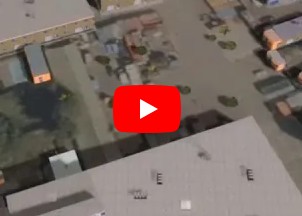How to export a DXF: Difference between revisions
Jump to navigation
Jump to search
No edit summary |
No edit summary |
||
| Line 5: | Line 5: | ||
{{howto|title=export a DXF for use in AutoCAD | {{howto|title=export a DXF for use in AutoCAD | ||
| Make sure that a Geo Plugin is present in your project. To learn more about Geo Plugins check out | | Make sure that a Geo Plugin is present in your project. To learn more about Geo Plugins check out the Geo Plugin below | ||
| Open the [[Geo Data Wizard]], which will assist with importing data. | | Open the [[Geo Data Wizard]], which will assist with importing data. | ||
| When importing for the [[Current Situation]], opt to import [[Building]]s.<br>When importing for the [[Future Design]], opt to import [[Measure]]s. | | When importing for the [[Current Situation]], opt to import [[Building]]s.<br>When importing for the [[Future Design]], opt to import [[Measure]]s. | ||
| Line 15: | Line 15: | ||
{{video|link=https://youtu.be/DyLB7XuHots|description=Video tutorial on exporting a DXF file [[Project]].}} | {{video|link=https://youtu.be/DyLB7XuHots|description=Video tutorial on exporting a DXF file [[Project]].}} | ||
{{article end | |||
| Documentation= | |||
* [[Geo Plugin]] | |||
}} | |||
{{article end | {{article end | ||
Revision as of 09:05, 29 March 2023
DXF Files can be exported from the Tygron Platform directly to be used as a base in an AutoCAD Drawing. The video below explains how this works.
How to export a DXF for use in AutoCAD:
- Make sure that a Geo Plugin is present in your project. To learn more about Geo Plugins check out the Geo Plugin below
- Open the Geo Data Wizard, which will assist with importing data.
- When importing for the Current Situation, opt to import Buildings.
When importing for the Future Design, opt to import Measures. - Select the DXF file, either as a local file on your computer or on the Geo Share.
- Select the layers in the DXF file to import.
- Follow the remaining steps in the Geo Data Wizard to select and import the features as desired.
- Finish the Geo Data Wizard to finalize the data import process.
